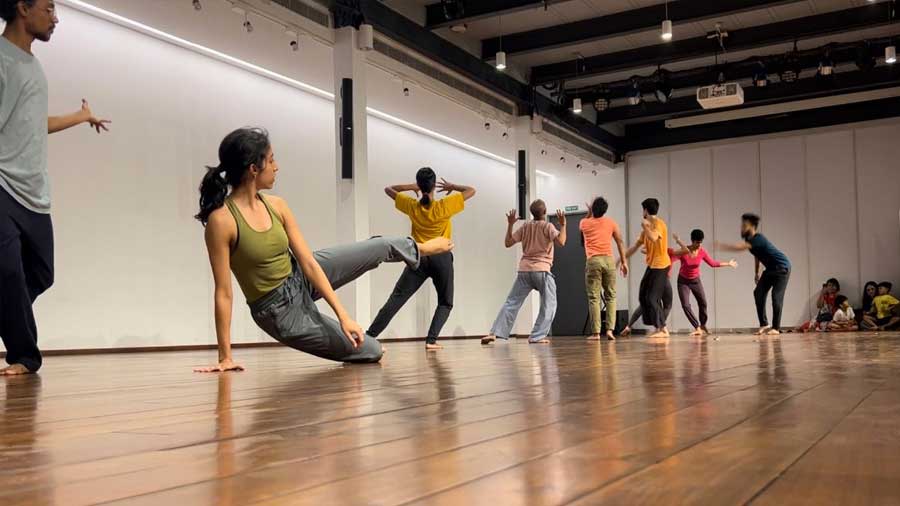Music, movement and poetry were used to introduce and interpret two American texts by leading writers at a programme organised by the Goethe-Institut Max Mueller Bhavan along with Pickle Factory and American Center engaged on April 6.
The idea of the programme germinated from the choreography of Sasha Waltz & Guests along with music composed by Terry Riley; which was incorporated in a dance workshop led by Mizoram-based dancer Joshua Silo. Music, Movement & Poetry – IN C on April 6 was a performance by Silo’s team as part of Project American A-Liverary initiated by Pickle Factory and American Center.
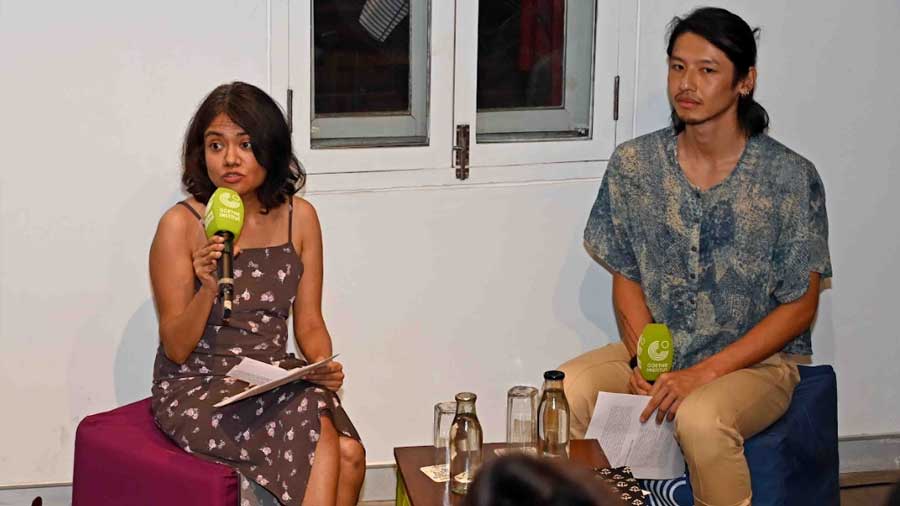
Shuktara Lal and Joshua Silo in conversation Amit Datta
The evening kicked off with an interaction between Silo and Shuktara Lal on the two texts that were chosen as the basis of the evening’s choreographic performance. The first was an excerpt from Singing Everything by Joy Harjo and the second titled No One Knows the Way to Heaven by Ocean Vuong. While Harjo borders her work on identities, oral histories, memories, indigenous myths and feminism; Voung portrays the influence of refugee trauma, immigration, queerness, influence of being raised by women and the impact of his father leaving them.
Asked about the choice of texts, Silo said, “You see their personal histories and journeys. Not just their own journeys but also their family journeys. When I read these two poems, I really fell in love with the way it makes you pay attention to the smaller details to look into the pauses and spaces in between. When we take a pause or find that stillness, we find the connection between the larger pictures. I feel like that is what is significant for the dance and choreography that we are exploring.”
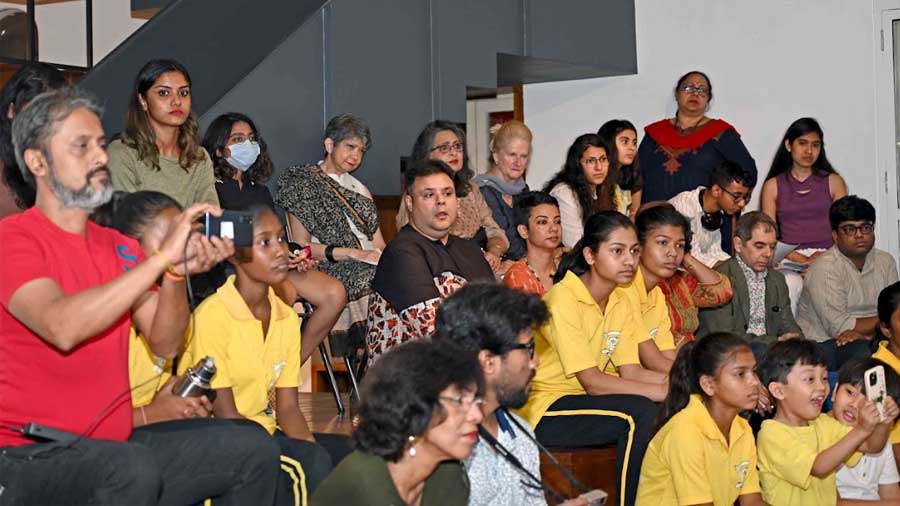
The audience for the event Amit Datta
The discussion made way to a 40-minute performance by dancers who participated in Silo’s workshop namely Dayita Nereyeth, Preetesh Tumulu, Srijaini Ghosh, Srestha Das Chowdhury, Rajan Rathore, Anishaa Tavag, Parinay Mehra, Pintu Das, Amitabh Srivastava. The performers presented an interpretation of the texts through their contemporary fluid dancing styles. Making use of the Goethe Institut auditorium, they perfectly merged usage of space with bodily expressions of tension, harmony, departures and confluence of individual choices.
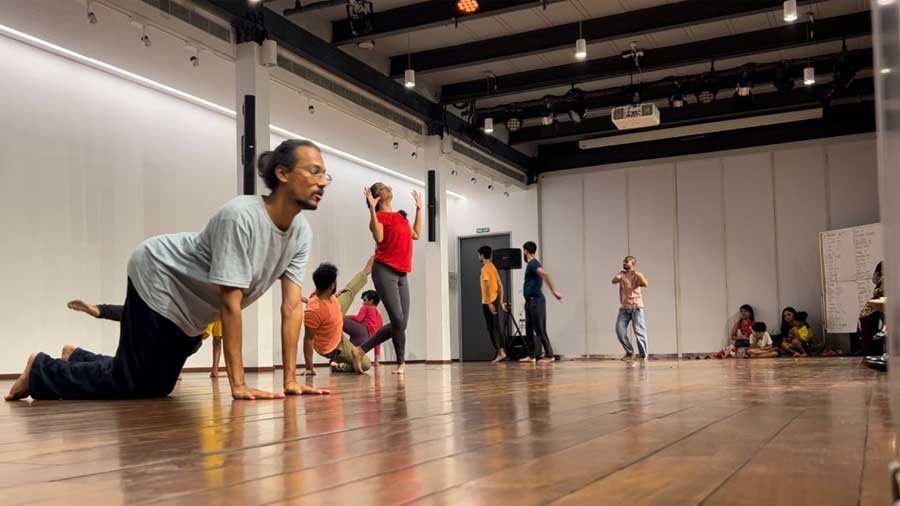
The performers presented an interpretation of the texts through their contemporary fluid dancing styles Sharmistha Sarker
Talking about the evening, Astrid Wege, director, Goethe-Institut Max Mueller Bhavan, said, “We are very proud to present our workshop sharing session IN C. IN C is a new choreography by acclaimed choreographer from Germany, Sasha Waltz & Guests. It was initiated and created to a music composition by American musician Terry Riley who created this music piece in 1964. It was considered to be one of the first minimalist compositions. The music consists of 53 musical phrases and Waltz has transformed these phrases into choreography. It also includes the possibility that there are multiple versions of this choreography so she invites choreographers from other parts of the world to get trained by her and then they go back and create new versions of IN C in their respective local contexts. Joshua Silo was chosen to take the training.”
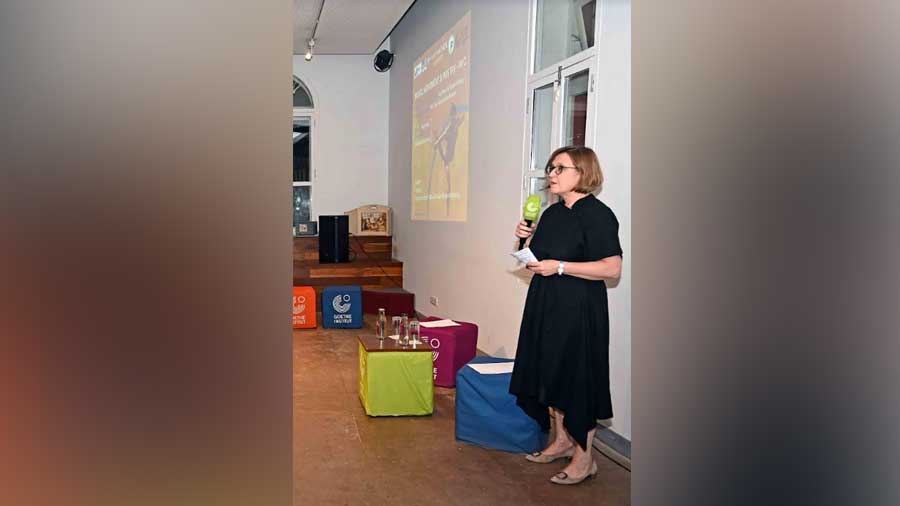
Astrid Wege, director, Goethe-Institut Max Mueller Bhavan Amit Datta
Adrian Pratt, director, American Center, commented, “Libraries have always been beautiful spaces. But of course, with the arrival of the internet and computer, the traditional uses of the library are fading away and we have to reinvent ourselves. Performances and interactive sessions like this are things we are doing more. We welcome students and the general public but if they come, they may have to interact or become a part of the programmes. These are ways for us to highlight a series of new American Literature which talks about different voices and tries to incorporate them into the typical library setting.”
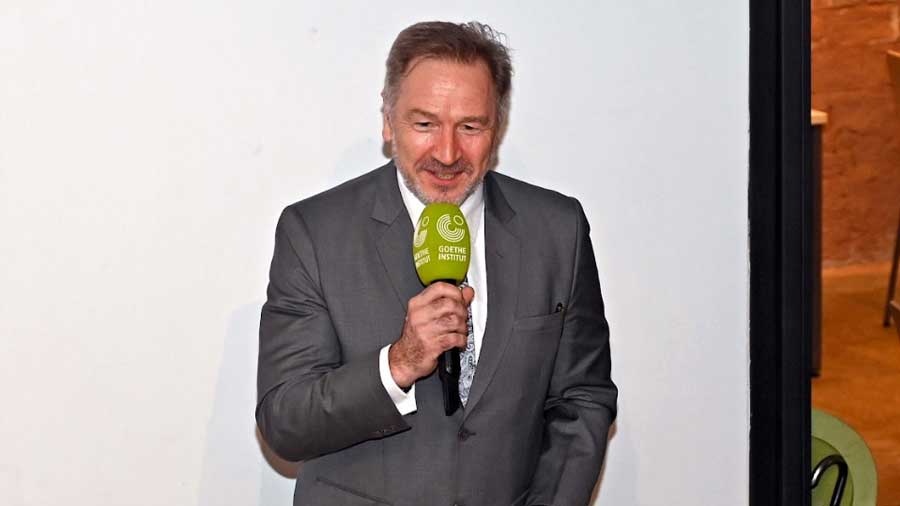
Adrian Pratt, director, American Center Amit Datta
